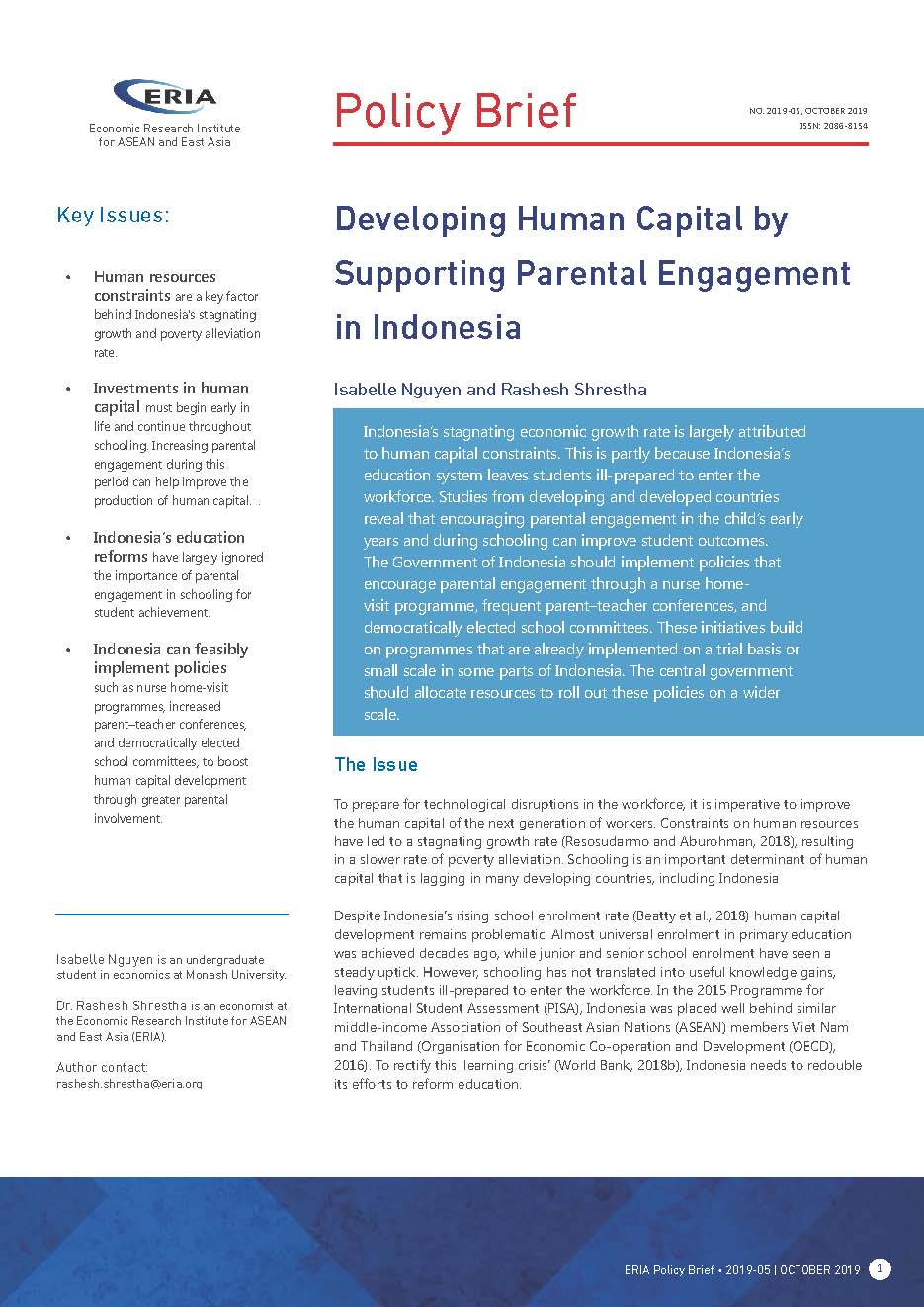Developing Human Capital by Supporting Parental Engagement in Indonesia

Date:
26 September 2019Category:
Indonesia, Education, Training, and Human CapitalType:
Policy BriefsTags:
Education, Training, Human Capital, IndonesiaPrint Article:
Indonesia’s stagnating economic growth rate is largely attributed to human capital constraints. This is partly because Indonesia’s education system leaves students ill-prepared to enter the workforce. Studies from developing and developed countries reveal that encouraging parental engagement in the child’s early years and during schooling can improve student outcomes. The Government of Indonesia should implement policies that encourage parental engagement through a nurse homevisit programme, frequent parent–teacher conferences, and democratically elected school committees. These initiatives buildon programmes that are already implemented on a trial basis or small scale in some parts of Indonesia. The central government should allocate resources to roll out these policies on a wider scale.




